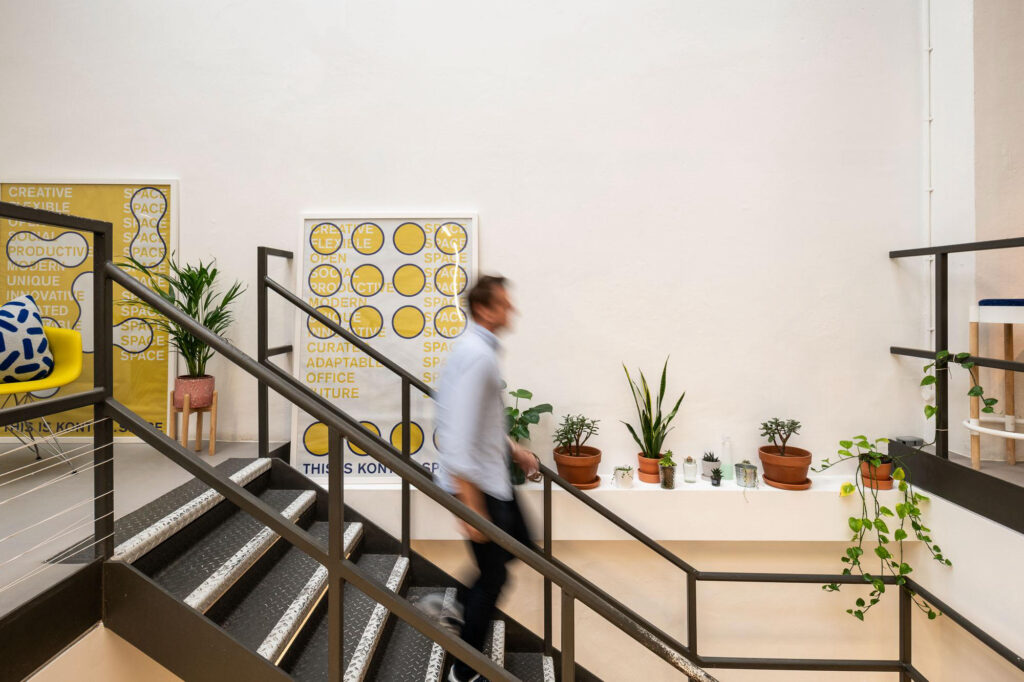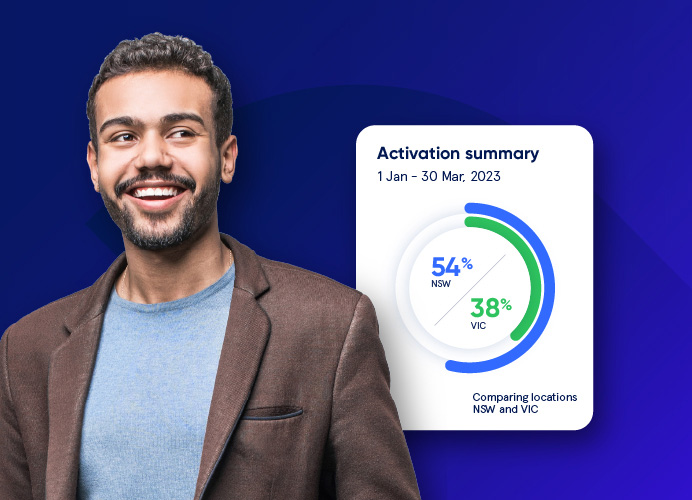How to balance performance and wellbeing at work with HiBob

Insights.
Mental health and wellbeing at work remains top of the agenda for many people leaders. But is it possible to maintain a strong culture of wellbeing all while chasing demanding targets and business success?
It's a tough question, but in today's competitive landscape, it's an unavoidable one.
To help answer that question - and give you the knowledge you need to drive operational excellence alongside employee wellbeing - we teamed up with leading HR tech provider, HiBob, for an exclusive webinar.
Hundreds of senior HR professionals joined to hear insights from experts across HiBob, Ooh Media!, JOLT and Sonder. The webinar brought together industry experts for an all-star panel:
- Damien Andreasen - Vice President APJ at HiBob
- Raechel Gavin - Chief People Officer at Sonder
- Uma Pillai - People & Culture Manager at JOLT
- Cheryl Kraft Reid - Head of WSE at Ooh Media
Together they dived into this complex question: can you drive productivity while nurturing employee wellbeing?
For those who'd rather read than watch, we've compiled their key learnings on balancing performance and wellbeing at work below. You can also watch the full recording here.
1. Deliver impactful onboarding
One of several key themes explored during the session was the importance of impactful onboarding.
Discussing JOLT's global expansion, Uma Pillai highlighted the significance of a positive onboarding experience in driving wellbeing and performance: "Upwards of 70% of employees will decide how long they'll be with a company in their first 90 days."
Ultimately, new employees must feel like an asset to the business, not an unexpected guest. And as HR leaders, your processes and policies must reflect this. One route to improving onboarding is to promote leaders and managers in the best light. That's because - as touched on by Uma - people leave bad managers, not bad organisations.
And for all organisations (especially remote workforces) technology is key to the onboarding process. Poor tech support or systems hinder and hamstring new hires. This can dampen their motivation at a time when they should be at their most energetic.
2. Prioritise role clarity
During the webinar, Raechel Gavin, Chief People Officer at Sonder, emphasised the critical nature of role clarity and an ongoing dialogue to support employees.
"Being clear around needs and expectations [is key]. In particular with role clarity...Role clarity is a dynamic process…one conversation is not enough," notes Raechel.
As a CPO, Raechel noted that the evolving landscape of leadership now demands a shift towards high empathy and addressing wellbeing of employees in a holistic way. She suggests coaching on stress management, better boundary setting, and creating peaks and troughs in workloads.
If your organisation lacks mutual role clarity, your people are likely to second-guess themselves and feel stretched or directionless. This can eventually contribute to burnout and anxiety.
3. Make hybrid work more human
The need for meaningful interactions and emotional connections was also front and centre in the discussion.
In a hybrid work setting, the need for meaningful interactions and emotional connections is increased. Encouraging in-person contact, fostering collaboration, and prioritising team performance over data alone can help redevelop emotional intelligence (which may be reduced among long-term remote colleagues) and improve mental health.
"[Consider] meaningful check-ins and personal follow ups. Actively, foster collaboration focus on team performance as well as individual performance and help teams move from data to meeting," said Uma.
4. Take a whole-person approach
Cheryl Kraft Reid, Head of WSE at Ooh Media!, emphasised the significance of acknowledging employees as complete individuals and not just professionals.
She mentions the importance of embracing a "whole person" approach within the workplace by considering employees' personal lives, interests, family dynamics, and even pets.
Cheryl notes that this approach facilitates a deeper understanding and connection within teams, contributing to a more supportive and inclusive work environment. During her onboarding, for example, new starters are asked about their personal lives before they delve into their professional experiences.
5. Lead from the front
Cheryl also highlighted the pivotal role of leaders in preventing workplace incidents or situations. She emphasised self-reflection for leaders to evaluate their own behaviours, fostering a culture of openness, and creating an environment that welcomes feedback and learning from failures.
She also stressed the need for leaders to be attentive and aware of their team members' wellbeing and focused on the significance of fostering a culture where it's 'okay to not be okay'.
Similarly, Raechel emphasises a need for modern leaders to incorporate high empathy into their leadership. The time when we said don't bring emotions into work has long passed, today we come to work as a full human being.
6. Measure it
In response to a question about measuring wellbeing metrics, Cheryl and Uma discussed different indicators to gauge employee wellbeing.
Cheryl highlighted the importance of exit interviews to understand employees' perceptions and experiences when leaving an organisation. Uma stressed the significance of engagement tools like pulse surveys and engagement surveys as well as paying attention to indicators like mood, energy levels, stress, and sleep patterns.
Driving performance and wellbeing
By implementing these insights, organisations can navigate the evolving work landscape, promoting a healthier and more productive environment for their teams. Watch the full webinar for an in-depth deep dive into the topics in this article.
About Sonder
Sonder is an Active Care technology company that helps organisations improve the wellbeing of their people so they perform at their best. Our mobile app provides immediate, 24/7 support from a team of safety, medical, and mental health professionals - plus onsite help for time-sensitive scenarios. Accredited by the Australian Council on Healthcare Standards (ACHS), our platform gives leaders the insights they need to act on tomorrow's wellbeing challenges today.
Related posts
There's so much more to share
Sonder is reimagining health, safety and wellbeing support. Sonder proves human centric care leads to earlier intervention. Sonder impacts one person at a time to drive meaningful change across an organisation. Sonder understands people and how to support them.






